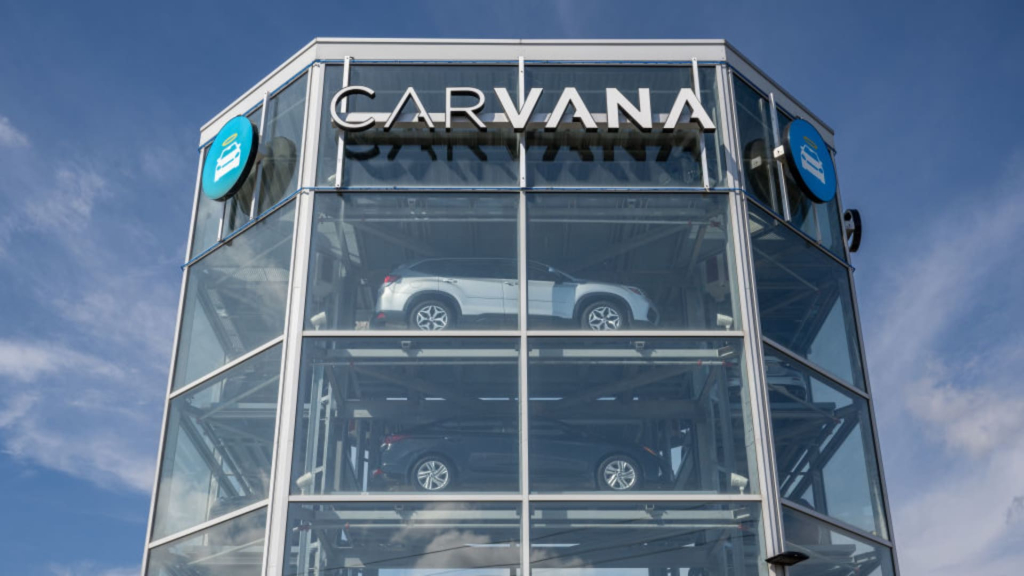DETROIT — Carvana has announced first-quarter results that significantly surpassed Wall Street projections, with record sales attributed to increased industry demand amid looming concerns over potential price hikes due to automotive tariffs.
In its first-quarter performance, Carvana reported the following, compared to average estimates compiled by LSEG:
- Earnings per share: $1.51 vs. 67 cents expected
- Revenue: $4.23 billion vs. $3.98 billion expected
The online platform for used vehicles experienced a 46% year-over-year increase in sales for the initial three months of the year, selling approximately 134,000 units. The company also achieved a net income of $373 million, along with an adjusted EBITDA of $488 million and an operating income of $394 million.
Carvana indicated that its net income benefited from approximately $158 million due to positive changes in the fair value of warrants related to its partner, Root auto insurance.
The revenue of $4.23 billion marked a 38% increase from the prior year’s total of $3.06 billion.
Guidance for the second quarter includes expectations for a “sequential increase in both retail units sold and adjusted EBITDA,” while the newly established management objective targets the sale of 3 million retail units annually at an adjusted EBITDA margin of 13.5% over a span of five to ten years.
Carvana’s CEO and co-founder Ernie Garcia expressed confidence in the company’s future, stating, “We are incredibly well positioned for the path ahead and have very clear visibility to even stronger financial performance, much larger scales, and even better customer experiences.”
This year, Carvana’s stock has surged approximately 27%, largely attributed to the company’s ongoing restructuring efforts aimed at reducing costs and enhancing efficiency.
The company did not address potential tariff impacts in its earnings release or shareholder communication. Investors are expected to seek insights during the forthcoming quarterly earnings call.
Although the 25% tariffs on new imported vehicles and parts do not directly affect the market for used cars, fluctuations in new car pricing, production, and demand can have indirect consequences on the used vehicle sector.
Garcia had previously refrained from elaborating on tariff impacts during the company’s fourth-quarter call in February, only expressing that expectations of rising new car prices could potentially influence price dynamics in the used vehicle market as well.
He remarked, “I think as a general matter, we’re running the business with the kind of idea of operating like it’s any other year. And we think that’s the smartest thing to do because there’s a lot of uncertainty around exactly how this thing will play out.”
A key indicator for used vehicle pricing surged last month to its highest point since October 2023, as consumers increased their purchases amid fears of price hikes linked to automotive tariffs, according to Cox Automotive’s latest report.


























